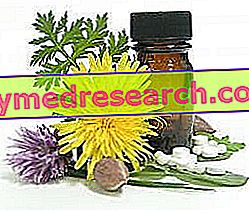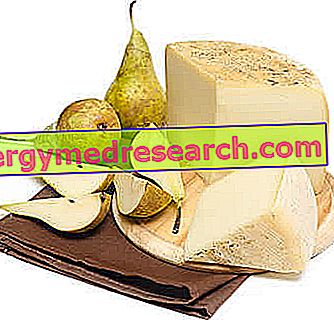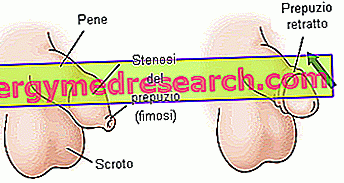High cholesterol is a serious health hazard: a correlation between hypercholesterolemia and cardiovascular diseases (heart attack, stroke, atherosclerosis) has been demonstrated.
Prevent high cholesterol
The best remedy to avoid high cholesterol is prevention: in this regard, you should respect and follow the rules dictated by nutrition education, not smoking, observe a correct diet and play sports.

The herbal market is attentive to the needs of consumers: especially in recent years, the sale of natural formulations to combat high cholesterol has clearly increased.
Effects of herbal remedies
In general, anti-cholesterol herbal products perform their action in two ways:
- They limit the absorption of cholesterol-like substances (such as for example triglycerides). Absorption is related to the quantity and quality of bile produced, and is an expression of the functionality of the liver and gallbladder: it is precisely at the hepatic level that many herbal products act, modifying the amount of synthesized bile. Let us remember, in this regard, that biliary excretion is the only way to dispose of excess cholesterol in the body, since a significant proportion (about 50%, greater in excess, less in conditions of deficiency) is not reabsorbed but eliminated in the faeces. In addition to choleretic drugs - cholagogues, dietary fibers and gums also reduce intestinal cholesterol absorption.
- The synthesis of endogenous cholesterol decreases: in this way they exert a hypo-triglyceridemizing and hypo-cholesterol-lowering action. The most famous representatives of this group are the policosanols, the garcinia cambogia and the fermented red rice.
Some anti-cholesterol herbal products act on the enzymatic system at the base of lipid metabolism; more precisely, they have the ability to perform their action on primary metabolic processes, which include lipids.
Herbal remedies of this type can also be used against side effects of obesity or overweight: "collateral" because the increase in blood lipids could lead to increased blood pressure and cardiovascular problems.
Formulation of herbal remedies
Herbal remedies can be characterized only by one element (for example cod liver oil), and therefore be very precise, or be more complex and connotate as drugs capable of carrying out more actions: in this group are included those herbal products that associate to the other cholesterol-lowering effect also other actions, such as diuretic and eupeptic.
In the treatment of dyslipidemias, simple sugars and saturated fats should be reduced, to the advantage of oleic acid and essential fatty acids: therefore, in the formulas of herbal products are often inserted policosanols, gamma-oryzanols and PUFA.
Polycosanols are lipid molecules with different structures found in some vegetable waxes and have a lipid-lowering action: they act by decreasing the endogenous synthesis of cholesterol and triglycerides.
Gamma oryzanols are abundantly found in rice bran: they can reduce the intestinal absorption of cholesterol and glycerides.
PUFA, an acronym for polyunsaturated fatty acids, generally derive from vegetable oils or fish oils: both the endogenous synthesis of cholesterol-like fats and their intestinal absorption decrease.
Among the plants rich in policosanols, PUFA and gamma-oryzanol we mention: garlic, guggul, artichoke, dandelion, curcuma and chrysantelum.
Side effects
Like all herbal formulations, even those for the treatment of high cholesterol involve side effects and contraindications: hypotension and reduction of coagulation capacity could be effects caused by excessive intake of hypolipidemizing products based on omega three; gastritis and hypertension could instead derive from the use of herbal remedies based on methylxanthines (caffeine, theobromine, theophylline etc.), while meteorism and flatulence are typical side effects of high-fiber-rich products against high cholesterol.



